Where is 'harapan' in Pakatan?
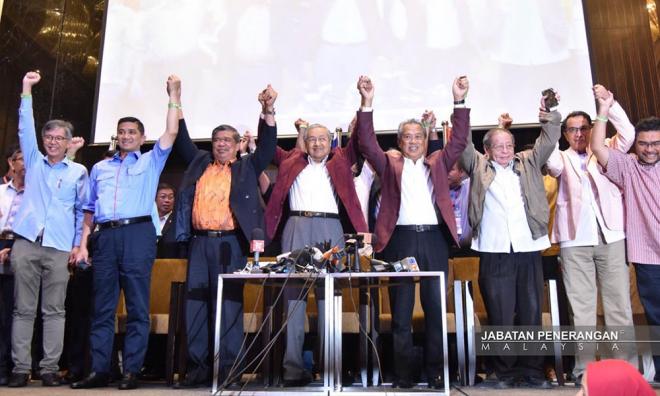
“What is wrong in the world today is that the nations of the world are engaged in a bitter, colossal contest for supremacy.”
- Martin Luther King Jr
The fall from grace of Pakatan Harapan, losing its grip on the federal powers in Putrajaya, draws its similarities with the downfall of a political party in Japan, once in 1993 and another one in 2009.
We have seen how Harapan evolved itself from Pakatan Rakyat, eventually winning the historic general election of 2018. The eclectic moment was short-lived, expired in premature death.
Who dunnit? Who is at fault? Is it true that Harapan is no different to BN or even Perikatan Nasional? Nearly 100 days since the week of political upheaval in Putrajaya, we have not seen much progress on either side of the bench.
It is a natural knee-jerk reaction from within the coalition as well as the supporters of Harapan about the implosion and several events that led to the sudden change of the federal leadership to the hands of PN, albeit with several members who were formerly from Harapan.
A ‘messy’ Harapan?
A look back at the Harapan-led government: how would one sum his or her views about this administration? It was a mess. Was it an ugly mess? I do not think so.
Harapan was not all without experience in governing, apart from running two state governments in the last two terms.
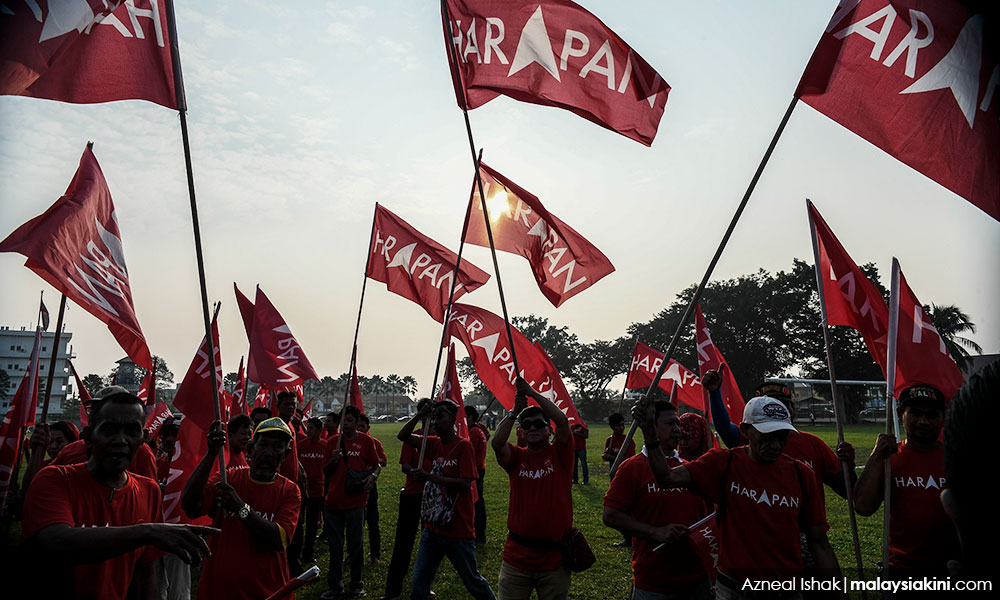
We have seen much improvement in both states since 2008. The "mess" I attributed to Harapan referred to the difficulties and challenges they face. Inside as a government, outside from the public, civil society organisations. It was such a "mess" when some Harapan leaders were seen trying to "compete" with their opponents. Hence, a blind race as superiority complex takes reign.
As Martin Luther King Jr mentioned aptly, the many wrongs we see today, including in Malaysia, the fault lies in the competition among politicians for supremacy. In whatever forms they may be, such race for supremacy benefits no one but those blinded by greed for power, fame and money.
Malaysians are too fixated with nonsensical issues and more often, they are easily swayed or diverted very easily with "explosive" stories on sex, scandals and sensational news, especially on race and religion.
Powers that be are not immune and always be open to criticisms. It all depends on how the administration responds and reacts to the criticisms, whether they choose to be transparent or not.
Let’s take a look at the examples in Japan. The Democratic Party of Japan (DPJ) took power from the Liberal Democratic Party (LDP) in 1993, albeit slightly longer in power for 22 months.
The DPJ had a short-lived 11 months of power after defeating LDP in 1993. The fall, however, saw consolidation and strengthening of DPJ that slingshot the party back into power in 2009.
That too did not last longer than a term for DPJ as public sentiment dwindled towards the end of the term. LDP came back into power under the leadership of Abe Shinzo (photo) in the 2012 elections.
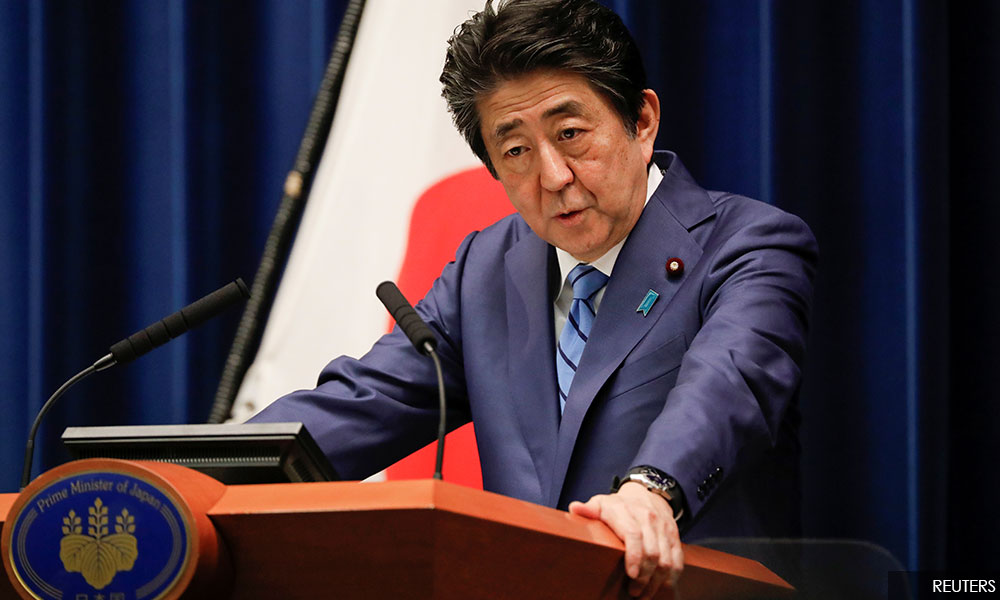
DPJ’s direction and rise back into power at the time were when public sentiment shifted into reforms and changing the old ways of governance. The failure to deliver the promises and reforms institutionally coupled with economic challenges placed LDP back into power.
Some critics will point out that it is a wrong comparison between the politics in Malaysia and Japan but the substance of it all is about managing expectations and keeping the momentum while in power. Back in Malaysia, Harapan "fulfilled" the prophecy by the opposition then that the coalition will only be a "half-term" government, taking the bait easily when non-existent chaos was created as a smokescreen, or rather, the eagerness of those within Harapan to seize the seat of power.
The Harapan leadership have to reflect upon themselves and try to solve the visceral issues in terms of effective communication and strategic planning, structural groundwork with party members and educating the public on democratic rights.
The Harapan leadership must accept the fact that the win in the last general election does not mean strong support for Harapan. The Harapan Plus coalition, including Warisan and Dr Mahathir Mohamad’s faction, must get back to the basics, understanding the values and principles they uphold since its inception. Politics per se is not all about the numbers game. The power to lead derives from trust and values of the people who voted for you.
Ending the 'old era'
Looking ahead, Harapan will be tested again in the forthcoming 15th general election should the Parliament expire in 2023. The coalition has less than three years to regain the loss of momentum and unlike the previous elections, Harapan will have very little time and a shrinking window ahead. They are left with limited choices moving ahead.
In the last 22 months at the helm of government, Merdeka Center’s survey showed a downward trend of support for Harapan, to its lowest at 35 percent in August 2019, compared to 87 percent in popularity during GE14 in May 2018.
Since the fall of Harapan at the end of February 2020, we have yet to see the latest numbers on public perception towards PN and Harapan. It will be interesting to see how the public responds to the current administration in the midst of the Covid-19 pandemic and how Harapan is shaping itself after the fall.
Let us first address the elephant in the room. Should Harapan continue to rely on Anwar Ibrahim or Mahathir as the frontrunner or should they look at other options instead?
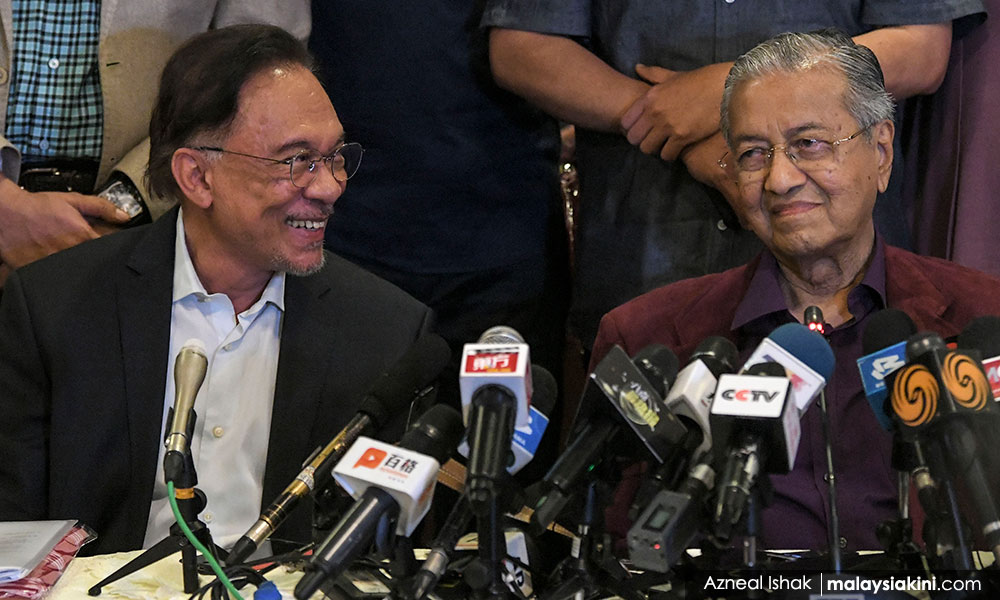
Mahathir and Anwar were the leading figures projected by Harapan as frontrunners in the last election and it has served its purpose. It is unfortunate that leaders from that generation will not be able to attract the base of supporters, especially about 7.8 million first time voters as young as 18 years old who will be eligible to vote.
Anwar ought to be given the credit for his effort to be present with daily, if not weekly, live video discussions on social media on current issues. Likewise, as Mahathir returns to his usual comments via his blog, there is not much traction and response to the elder leaders in Harapan.
It is about time for Harapan to look at other alternatives to move forward. In the last three months during the movement control order (MCO), there were a number of potential young leaders and fresh new faces from the coalition that will be able to reconstruct a stronger base of support.
It is not to say that Anwar and the likes of the senior leadership of Harapan component parties should take a backseat, but to implement a strategy to allow more space for the second and third-tier young leaders and more women to be at the forefront of politics would be more viable to garner better support from the ground.
It is unnecessary for Harapan to be very reliant on senior leaders and disregard the need to portray fresh new faces and new blood of leaders. Showing clear leadership and to be seen "connected" to the sentiment of the people will help to strengthen the trust in Harapan.
PM-designate from East Malaysia?
In case Mahathir takes a backseat in the leadership, Harapan will need to reflect deeply before deciding on the prime minister and deputy prime minister designates. Considering the current circumstances, Harapan may consider proposing Sabah Chief Minister and Warisan president Shafie Apdal (below) as the new frontrunner.
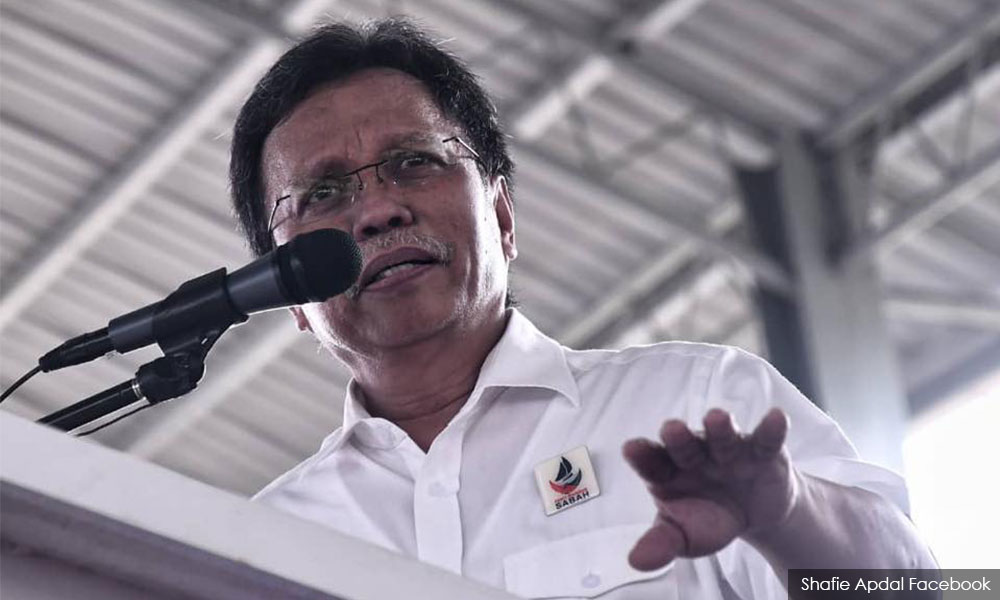
This will be a new game plan to show that Harapan is ready to have a prime minister from East Malaysia, and also acknowledging the growing sentiment from the Borneon states that they are not seen as equal partners at the federal level.
The forthcoming Sarawak state election, due to be held sometime next year, will be another factor on how Harapan will use this as a pivotal point to shore up momentum for the next general election. A whole new realignment and strategies will have to be in place as soon as possible to secure a better outcome.
Harapan must not be delusional in its own reality and they cannot afford to continue harping on power transition from Mahathir to Anwar again. The never-ending fiasco and debate of power transition and infighting between supporters of Mahathir and Anwar have taken so much focus, instead of a push for reforms and good governance.
Learning from past lessons, Harapan must show a firm and strong resolve in facing tumultuous political dynamics in the country. The challenges ahead for Harapan will be more difficult than pre-GE14, with growing politicisation of race and religion as the tool to divert the public attention from the actual pressing issues in the country or falling into its own trap of ego and pride.
Harapan should now move forward as a united front to realise their vision to create a "New Malaysia".
NORMAN GOH is a former journalist. - Mkini
✍ Credit given to the original owner of this post : ☕ Malaysians Must Know the TRUTH
🌐 Hit This Link To Find Out More On Their Articles...🏄🏻♀️ Enjoy Surfing!



















Post a Comment